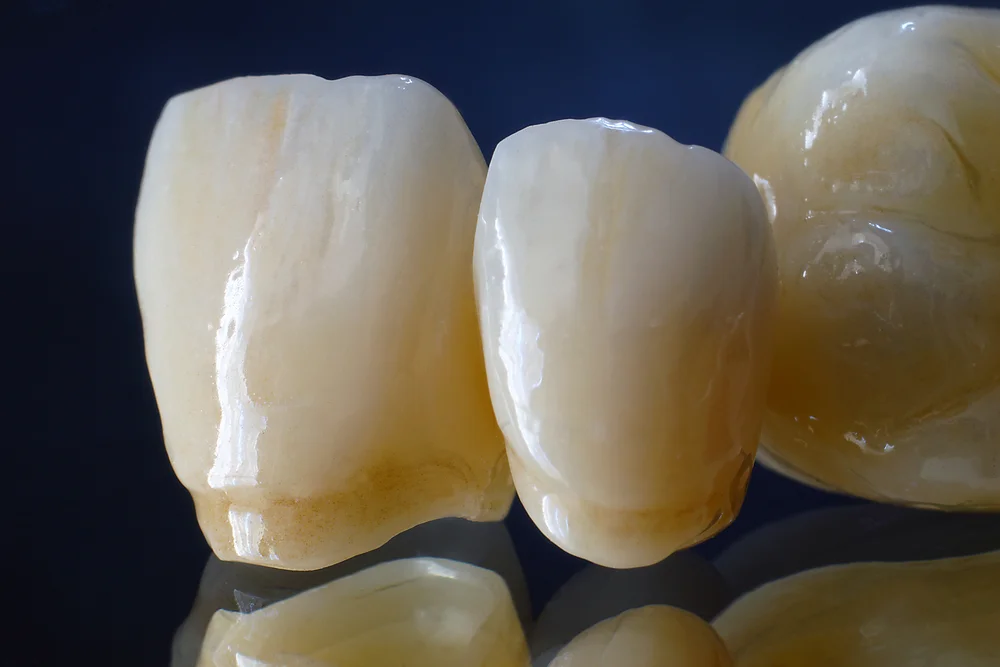- Wisdom teeth generally erupt between the ages of 17 and 25.
- Wisdom teeth often need to be removed as they can become impacted, cause infection or affect neighboring teeth.
- Surgery is quick and safe, with most patients requiring a week to ten days for recovery.
- Local or general anesthesia is used during surgery so no pain is felt.
The removal of wisdom teeth is a rite of passage for many young adults. More formally referred to as third molars, wisdom teeth get their nickname from the time they develop—between the ages of 17 and 25.
Interestingly, humans today no longer require wisdom teeth for survival. Nowadays, wisdom teeth don’t appear in 35% of the population. Biological anthropologists believe wisdom teeth held the historic function of grinding down coarse food such as leaves, roots, nuts, and meats that prehistoric humans regularly consumed as part of their diet.
According to the American Association of Oral and Maxillofacial Surgeons (AAOMS), 85% of the population will need to have their wisdom teeth removed.
Is wisdom teeth removal necessary?
There are several reasons why wisdom teeth may need to be removed:
- Wisdom teeth remain completely embedded in the gums. If the teeth cannot emerge normally, they become impacted within the jaw. This may result in infection, cause the formation of a cyst that is detrimental to the roots of other teeth, or affect bone support.
- Wisdom teeth emerge partially through the gums. This partial eruption means the teeth can become difficult to clean. It can also create a passageway that allows bacteria to become lodged causing gum disease or oral infection, such as pericoronitis.
- Wisdom teeth may crowd the neighboring molars. If they do not have enough space to grow through properly, these teeth may cause damage to surrounding teeth.
According to the American Dental Association, the following symptoms may indicate it is time to see your dentist:
- Pain
- Frequent infections of the gums surrounding your wisdom teeth
- Cysts which appear as fluid filled sacs
- Damage to nearby teeth
- Gum disease
- Tooth decay
Some dentists also believe in removing the wisdom teeth at a young age before any symptoms become apparent—before the roots and bones are fully developed. This enables a faster recovery from surgery.
However, there are also circumstances when wisdom teeth do not need to be removed. They can remain in the mouth if they are:
- Healthy
- Fully erupted
- Correctly positioned and not crowding other teeth
- Properly cleaned to maintain tooth hygiene
How are wisdom teeth removed?
Patients are most commonly placed under sedation anesthesia for wisdom teeth removal. Sedation is administered to suppress consciousness while a local anesthesia is used to numb the gums.
Once sedated, the oral surgeon makes an incision in the gum to expose the tooth and bone. Any bone blocking access to the tooth will be removed, sometimes necessitating the use of a drill. Any bone removed will, however, reform in time.
Once the tooth can be maneuvered out, it is removed along with any debris. In some cases, it is easiest for the tooth to be divided into segments rather than removed as a whole.
The area that the tooth has been removed from will then be cleansed, and dissolvable stitches placed to restore the contour of the gum and prevent bleeding from the surgical site.
How long does it take to remove wisdom teeth?
According to Dr. Mark Duncan at Aesthetic Dentistry of Georgetown in Georgetown, TX, the length of surgery needed to remove wisdom teeth varies.
“It depends on the specifics of the teeth. Some are relatively straightforward and it’s a matter of minutes. On the other hand, some are covered by bone and will require a lot more work to get to them in order to get them out. In general they are scheduled for about an hour, but that is also very much a function of the amount of bone around the teeth.”
Although the removal is a relatively swift procedure, you also need to factor in recovery time. Most people experience some postoperative pain and swelling, and to a lesser extent, bleeding. This can last for up to a week or in some cases a little longer.
The length of recovery depends on how badly the wisdom teeth were impacted and the angle at which they were erupting.
Does wisdom teeth removal hurt?
Most patients who have had their wisdom teeth removed will agree there is some discomfort following surgery; the level of pain varies, as pain is a unique experience for everyone. However, dentists can predict, and to a certain extent manage, the discomfort caused by the removal.
For most people, the pain experienced during or after the procedure can be minimized and managed effectively.
Oral surgeons use one of three types of anesthesia during surgery to manage and minimize pain: local, general, and sedation anesthesia. Your dentist will discuss the most appropriate option for you based on the work required to remove your wisdom teeth, and your health and preferences.
Proper anesthesia of the area around the wisdom teeth numbs the nerve, blocking the pain signals to the brain. The other major factor that can cause pain is swelling.
As Dr. Duncan elaborates, “Obviously, with surgery, there is some trauma, but the more we can limit that, the better. Managing swelling can be both preemptive and also postsurgical with anti-inflammatory meds, but it is better to not cause swelling to begin with. The less the hard and soft tissues are damaged during the surgery, the better.”
How long is the recovery period after wisdom teeth removal?
The time you can expect to spend recovering from wisdom teeth removal depends on:
- The severity or complexity of your case.
- Your general health; healthy individuals are generally more resilient and recover more quickly.
- How carefully you adhere to pre- and postoperative instructions.
During recovery, you can take pain medication to help manage any discomfort. Ice packs over the jaw also help reduce inflammation and minimize swelling. Your oral surgeon will also have some postoperative recommendations regarding the care of the surgical site that can dramatically improve your recovery.
Dr. Larry Evola of Forestream Dental in Depew, New York, emphasizes: “You’ll want to avoid foods that are difficult to chew for several days. Soft foods are best. Pasta is good. Do not drink anything through a straw. The suction may break up any blot clots, and you can begin to bleed again. Avoid extremely hot or cold foods as well. You should be back to normal within a week to 10 days.”
Other tips to aid in recovery:
- Most dentists advise taking it easy for 3-4 days and getting plenty of rest.
- Avoid strenuous activities and physical exercise to prevent dislodging the blood clots where the teeth were removed.
- Smoking is strongly discouraged, as according to the American Dental Association, it can delay the healing process and lead to a condition called “dry socket” or possibly cause persistent infection in the jawbone.
- For the first twenty four hours after surgery, do not brush, spit, floss or rinse.
- Following this period, it is essential to keep the mouth scrupulously clean to avoid infection. Do so by rinsing with salt water regularly and gently brushing your teeth.
If you notice any symptoms such as pus discharge, severe pain or fever, let your oral surgeon know immediately.
Can wisdom teeth removal cause complications?
With any surgical procedure there are risks, but the risks are relatively low for this type of procedure. Your surgeon will discuss this with you prior to surgery.
Some more common complications that can occur include:
Dry socket
A blood clot fails to form in the tooth socket, or the blood clot dislodges. The symptoms include pain that radiates from the surgical site, bad breath, and an unpleasant taste in your mouth. Dry socket requires your dentist or surgeon’s attention to promote healing.
Nerve injury
The lower wisdom teeth roots are in the same location as the nerves in the lower jaw, so in some cases, nerve damage can occur.
According to Dr. Duncan, “In very rare occasions, the nerve damage can be more long term or even permanent. Sometimes that’s simply poor technique, but usually when the nerve is close enough to be damaged by the process, it’s something that will come up in the discussion prior to the procedure. Fortunately, the kind of damage we are talking about is almost always a change in the sensation in the area. The teeth may feel numb or ‘woody’ or simply different, but normal function is almost always there as soon as the swelling and soreness fades away.”
Infection
Signs of an infection include a high temperature, discharge from the extraction site, and persistent pain and swelling. If you suspect infection, call your surgeon immediately. Antibiotics are often used to clear up infections.
Bleeding
Persistent gently bleeding or oozing from the socket may sometimes occur as the clot is forming. Bleeding can sometimes be controlled; you can roll up a piece of clean, damp gauze, place it on top of the wound, and bite on it firmly for 45-60 minutes. This pressure can help stop the bleeding. If you experience excessive bleeding, call your surgeon.
Temporomandibular disorder (TMD) or dysfunction
While this is still debated, many surgeons believe that traumatic surgery can cause TMD. The forced opening of the jaw during surgery can cause strain to the joint, and has been linked to symptoms such as headaches, jaw pain, neck pain, and difficulty sleeping.
Dr. Mark Duncan explains that if this occurs, the best solution is not surgical, “but more about getting the muscles to get comfortable and helping the inflamed tissue in the joints heal. The jaw joint itself can become abused and bruised or even dislocated by long procedures or procedures that create a lot of torque in the lower jaw.”
Does insurance cover wisdom teeth removal?
Unfortunately, most healthcare plans exclude dental coverage. There are specific dental insurance providers that will pay up to half the cost of wisdom teeth removal as long as the removal is considered medically necessary. Other dental plans will place a cap on what they will contribute which may be between $1,000 and $1,500.
Coverage for wisdom teeth extraction can vary quite significantly by insurer and policy. If you don’t have insurance, wisdom teeth removal can be costly: extraction of a single impacted wisdom tooth can range between $300 and $600.
If you require general anesthesia, this would be an additional cost. However, there are options available to finance this surgery and some surgeons offer payment or discount plans. There are also third party financing options.
» Want to find out more about your options for financing wisdom tooth removal? Read our CareCredit financing guide.









